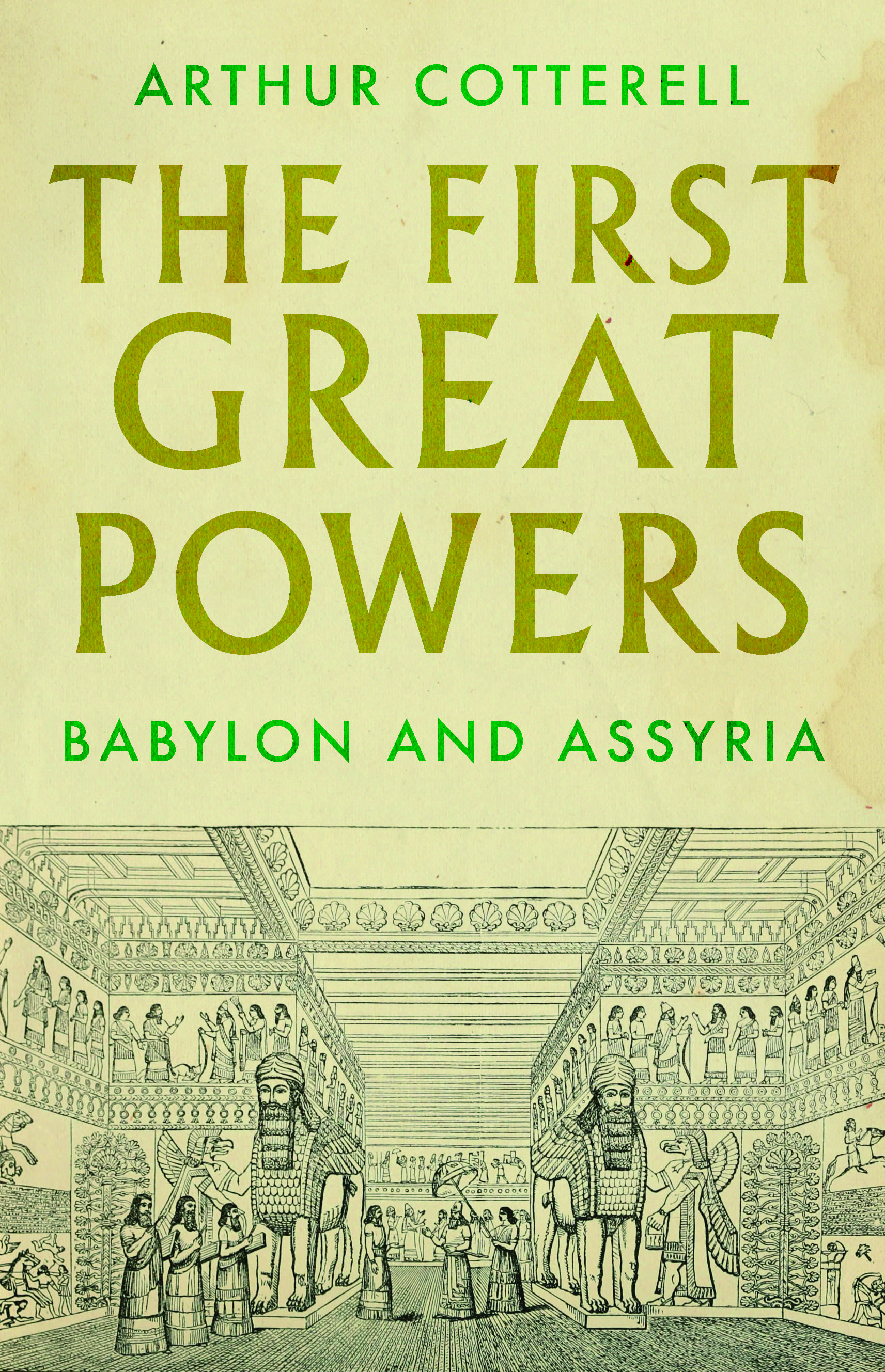
The First Great Powers: Babylon and Assyria
Jane Waldron Grutz
Arthur Cotterell.
Hurst, 2019.
Noted historian Arthur Cotterrell brings the long and complex history of Mesopotamia to life in this survey of one of the first great civilizations. This history begins in the fourth millennium BCE on the Euphrates River with the founding of the world's first city, Uruk, in Sumer, where it is thought Sumerians began to inscribe symbols on tablets, thereby creating cuneiform, the earliest form of writing. Progress in the sciences, particularly mathematics and astronomy, soon followed, paving the way for the rise of Babylon and later Assyria, which used both respectively to control their economies and to foretell the future. Cotterrell describes the roles played by kings and gods throughout Mesopotamian society, and how advances in warfare allowed some nations to advance and create power centers over time-successfully administrating large tracts of land. This brought diverse peoples together into a unified whole, thereby creating a civilization not so different from our own.
-JANE WALDRON GRUTZ
You may also be interested in...

Old Documents Shed New Light on History in Book Connected to Ancient Islamic World
The painstaking work to recover history—one page at a time—is on brilliant display in this collection of essays focusing on early Arabic, Coptic, Greek, Hebrew, Latin and Sogdian manuscripts.
A Fresh Perspective on Senegal’s Photographic History
Author Giulia Paoletti’s Portrait and Place puts historical Senegalese photography in a fresh global context.